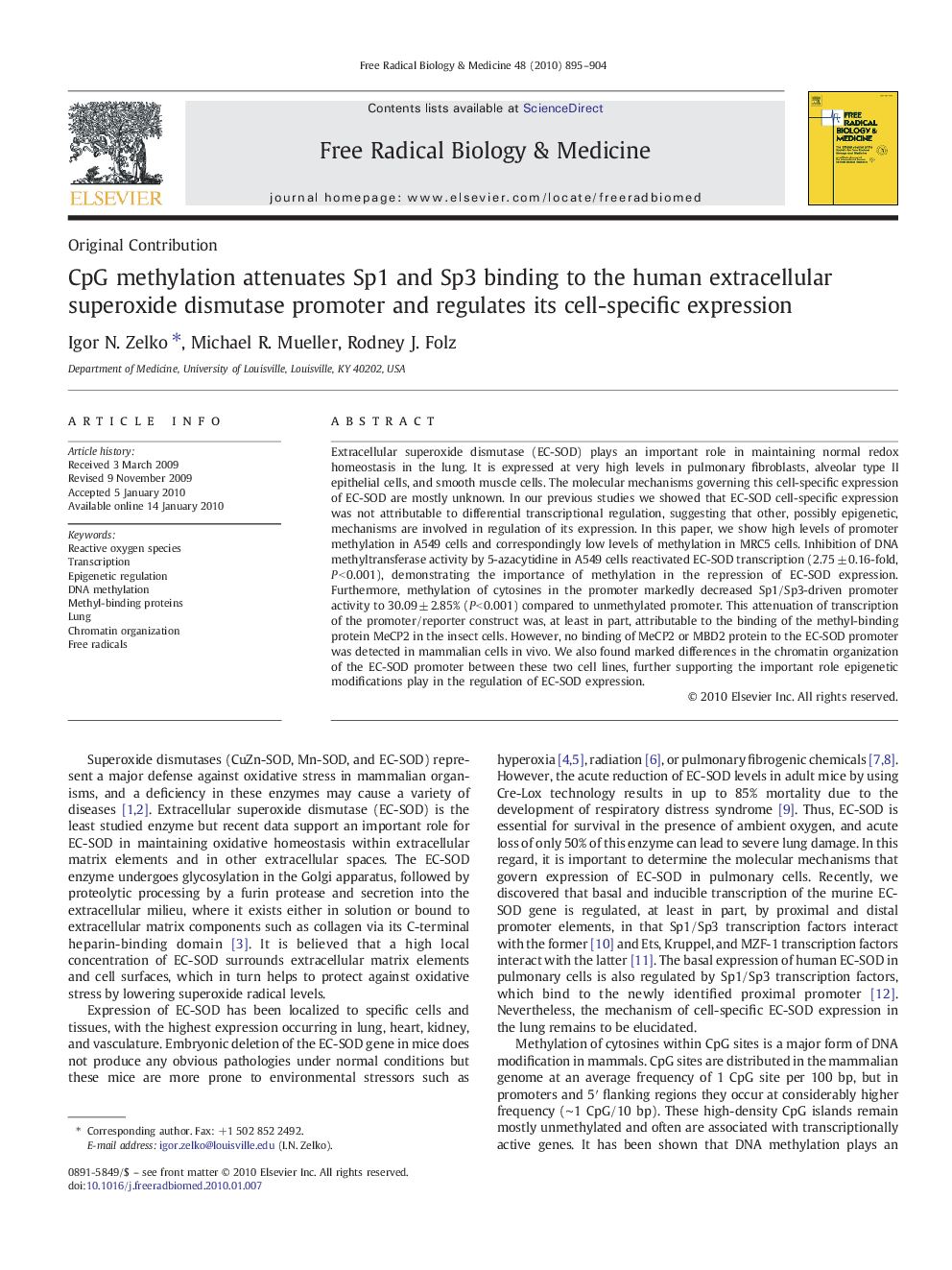| Article ID | Journal | Published Year | Pages | File Type |
|---|---|---|---|---|
| 1910197 | Free Radical Biology and Medicine | 2010 | 10 Pages |
Extracellular superoxide dismutase (EC-SOD) plays an important role in maintaining normal redox homeostasis in the lung. It is expressed at very high levels in pulmonary fibroblasts, alveolar type II epithelial cells, and smooth muscle cells. The molecular mechanisms governing this cell-specific expression of EC-SOD are mostly unknown. In our previous studies we showed that EC-SOD cell-specific expression was not attributable to differential transcriptional regulation, suggesting that other, possibly epigenetic, mechanisms are involved in regulation of its expression. In this paper, we show high levels of promoter methylation in A549 cells and correspondingly low levels of methylation in MRC5 cells. Inhibition of DNA methyltransferase activity by 5-azacytidine in A549 cells reactivated EC-SOD transcription (2.75 ± 0.16-fold, P < 0.001), demonstrating the importance of methylation in the repression of EC-SOD expression. Furthermore, methylation of cytosines in the promoter markedly decreased Sp1/Sp3-driven promoter activity to 30.09 ± 2.85% (P < 0.001) compared to unmethylated promoter. This attenuation of transcription of the promoter/reporter construct was, at least in part, attributable to the binding of the methyl-binding protein MeCP2 in the insect cells. However, no binding of MeCP2 or MBD2 protein to the EC-SOD promoter was detected in mammalian cells in vivo. We also found marked differences in the chromatin organization of the EC-SOD promoter between these two cell lines, further supporting the important role epigenetic modifications play in the regulation of EC-SOD expression.
